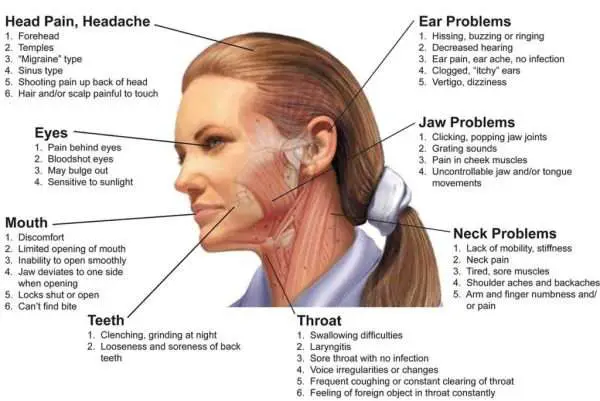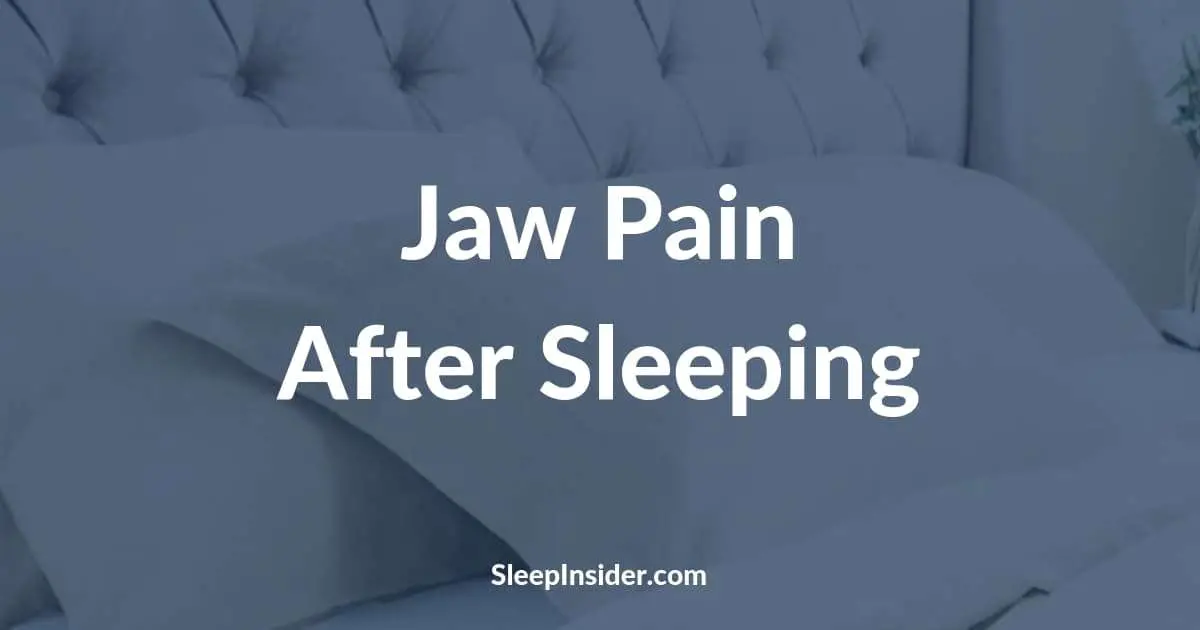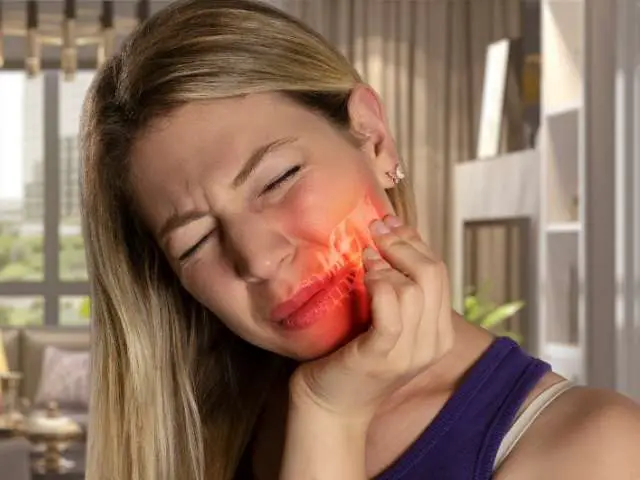Ask A Dentist: What Is The Right Sleeping Position For Tmj
Temporomandibular joint syndrome, commonly referred to as TMJ, is a pain in the jaw joint that can be caused by joint abnormalities, arthritis or other medical conditions. Common treatments include dietary changes, stress reduction, muscle stretching, physical therapy and anti-inflammatory medications. Changing sleep positions can also reduce symptoms in some cases.
Final Thoughts On How To Relieve Jaw Pain
In addition to consulting with a dentist, you can also try some home remedies in the meantime to relieve jaw pain. This will help in the short term, but you will ultimately need to see our dentist in Redlands to identify the underlying cause and find long-term relief.
We are here to answer any questions you might have regarding jaw pain and how to relieve jaw pain. If you would like to schedule an appointment with a highly rated, trusted and caring dental team, contact us today.
You Might Also Enjoy…
- 5/5
When Should You See A Doctor
Jaw pain isnt always severe, but sometimes, it could indicate a painful underlying condition, especially if it comes along with other symptoms.If your pain seems to stick for several days or comes and goes repetitively, dont hesitate to consult your doctor or your dentist.
Here are some symptoms that you shouldnt wait to get medically checked on:
-
Youre experiencing pain and difficulty while eating, drinking, swallowing, or breathing.
-
You cant move or use your mouth in a way you did before.
-
You develop a fever.
-
Theres swelling in your jaw area or your face.
If the pain is unbearable or any of these symptoms show up, dont wait for an appointment. Head directly to the emergency department, where you will be taken care of.
Recommended Reading: Sleep Number Bed Power Cord
Rheumatoid Or Psoriatic Arthritis
These forms of arthritis occur because your immune system attacks healthy joints. Both rheumatoid and psoriatic arthritis are identified as autoimmune conditions.
You may experience joint pain throughout your body at different times, including in your TMJ, and certain triggers may cause the pain to flare up.
Youre Sleeping In A Bad Position

Most of us are familiar with the notion that poor posture can produce pain . But the same is true about your pillow-time posture.
“Poor posture while sleeping leads to imbalances in the muscles that support the head and neck,” Dr. Ratner says. And these muscles play a pivotal role in the positioning and function of the jaw, he says.
So when they become stressed , “the result is usually pain,” Dr. Ratner says.
âFix itâ: While thereâs no perfect sleep position to prevent jaw pain, âproper support for your head and neck is critical for good sleep and for reducing the chance of sore muscles,â Dr. Ratner says. In other words, invest in a supportive pillow.
A good pillow is especially important when youâre a side sleeper, because snoozing on your side can stress your neck muscles if your head isnât properly propped. The BEDGEAR Body Pillow is a good option for side sleepers, as itâs designed specifically to relieve pressure and provide support for your head, neck and back.
Don’t Miss: Sleep Number Bed Reviews Consumer Reports
What Does Jaw Pain On One Side Mean
Jaw pain on one side can be concerning. But in most cases, its not a sign of a serious condition.
Mild jaw pain is usually temporary and resolves on its own. But severe jaw pain can feel excruciating, making it difficult to talk, chew, and swallow. It can also cause pain and discomfort in other parts of the body. Severe jaw pain typically requires medical attention and treatment.
Get Help For Jaw Pain In Long Beach From Dodds Dental
If you are having trouble with jaw pain and believe you may be grinding your teeth, itâs important to get help. Prolonged, heavy grinding can cause serious problems like TMJ , and premature tooth wear & tear.
So donât wait. Contact Dodds Dental at 439-0754 now to schedule a consultation with Dr. Dustin or Dr. Emily Dodds, and get the care you need to keep your mouth healthy.
Read Also: Sleep Number Smart Bed King Size
Woke Up With Jaw Pain Here’s What Your Body’s Trying To Tell You
Waking up feeling like someone socked you in the jaw? Morning jaw pain is no joke.
Video of the Day
While you might experience an occasional sore jaw from sleeping in a weird position , chronic jaw pain in the a.m. might be a sign of something more serious.
Here, dentist Craig Ratner, DMD, former president of the New York State Dental Association, explains why you might wake up with jaw pain and what you can do to manage or decrease the discomfort.
How Can I Relieve Tmj Pain
Some exercises and pressure points may help to reduce the pain of TMJ temporarily.
For a jaw relaxation exercise: Touch your tongue to the roof of your mouth just behind your front teeth, then gently open and close your mouth. Repeat as needed.
For a jaw pain pressure point: Place your thumb under your chin and apply pressure while opening your mouth. Hold for up to five seconds before closing your mouth.
Recommended Reading: Sleep Number Bed Vs Regular Mattress
How To Stop Your Anxiety Jaw Pain
There are some quick fixes to control jaw pain occurring due to anxiety. The best place to start is with a mouth guard to prevent any clenching during sleep. There are several mouth guards for those who grind their teeth at night, and this can provide some relief for those with persistent anxiety.
Greater mindfulness can also provide some relief. Pay attention to your anxiety. When you feel yourself getting stressed, see how your mouth feels. If you find that you’re clenching, stop. Eventually, you can train your brain to stop automatically clenching your jaw during periods of intense anxiety.
Yet the key is going to be to stop your anxiety altogether because only then will you automatically start to relieve tension around your mouth and facial area. You can try traditional options, including:
- Cognitive behavioral therapy.
- Medicine.
- Herbal strategies.
Yet there are other options out there that have very high success rates and can be completed in the comfort of your own home.
Summary:
Anxiety causes muscle tension, clenching teeth, and other symptoms that can cause pain and discomfort in the jaw. Mindfulness can help individuals gain better control over their jaw discomforts, although a long-term anxiety treatment is the only way to help control the factors that lead to jaw pain.
Was this article helpful?
When To See A Doctor Or Dentist
Some conditions that cause one-sided jaw pain can progress to something worst that may need immediate medical care.
Visit your healthcare provider for a proper diagnosis of your disease.
- When you experience pain in your mouth or jaw for prolonged periods and are accompanied by debilitating symptoms such as high fever, chest pain, and fatigue, visit a hospital immediately.
- Also if your jaw pain interferes with simple tasks and your health, such as trouble eating, drinking, swallowing or breathing.
- You hear a clicking sound around your jaw joint, have difficulty opening your mouth, and other additional symptoms of a temporomandibular disorder.
- Suppose your jaw hurt on one side from physical impact that may result in jaw injury. It may be caused by a dislocation or fracture and will need emergency treatment.
- Visit your dentist if you have emerging wisdom teeth and a dental problem like cavities or gum disease.
- If you have severe tooth pain, bleeding gums, mouth sores, lumps or growth in your mouth. Any signs of an infection, tumor or cysts, will need immediate treatment.
You May Like: Sleep Number Comfortfit Curved Pillow Review
Locked Jaw On One Side: Causes And Fixing Methods
Locked jaw prevents the mouth from its normal functioning as it cant open normally. A locked jaw can cause severe discomfort and pain. It also has a great impact on eating, drinking, speaking and even maintaining good oral health. This medical condition is also known as trismus and it can occur on one or both sides of the jaw. Continue reading about the common causes of a locked jaw and its treatments.
Make A Dentist Appointment Today

If youve been waking up with jaw pain on one side, you could be suffering from one of the common issues above. But, its not a comprehensive list. If you have frequent jaw pain, you should visit a medical professional to find the cause.
If you think your jaw pain is coming from your teeth, gums, or TMJ, Suburban Essex Dental can help. With the right care, your jaw pain will soon be a distant memory. If youre looking for great dental service from a totally dedicated and caring team, contact us today.
Also Check: Sleep Number Store Omaha Ne
Hear From Some Patients:
Pain-free living is a real possibility. Check out a few of our Google reviews from people just like you who suffered jaw pain:
Dr. Rondeau and staff are truly amazing. I have suffered with severe headaches, neck pain, jaw pain etcfor over 15 years. I spent many years trying different therapies that did not help. It was Dr. Rondeau who found the root of my problem. Since I started TMJ treatment I have not had the headaches or pain and feel absolutely amazing. Thank you Dr. Rondeau and staff you have restored my quality of life!!!
Excellent resultsso pleased with the outcome of treatment for my TMJ. Lengthy journey and commitment to get to this point where my quality of life has improved thanks to the expertise of Dr. Rondeau and his terrific team. Staff are knowledgeable, welcoming and SO personable they guide you through the entire process. Fortunately I am now pain free, no jaw clicking, clenching, headaches appreciate the support!
How To Alleviate Jaw Pain
Do you have mild pain in your jaw? You may not need medical treatment! Here are a few ways you can get relief:
- Apply a hot or cold compress. Heat can help your muscles relax, giving you relief from aches and stiffness. Alternatively, a cold compress can numb the pain and reduce swelling.
- Take over-the-counter pain relief. Medications like acetaminophen and ibuprofen can temporarily relieve your pain.
- Rest your jaw as much as possible. Stick to a diet of soft foods that dont require a lot of chewing. Itll help you avoid overworking your jaw muscles!
- Massage your jaw. It can help release pain and tension in your jaw. Try some techniques on your own or visit a specialist for help .
If youre experiencing jaw pain on one side, use the tips outlined above for some relief. Although it should typically resolve on its own within a few days, you can always seek treatment from your dentist for peace of mind!
About the Author
Dr. Nicholas Brong is passionate about helping patient achieve and maintain optimal oral health. He earned his Doctor of Dental Surgery from the University of California in San Francisco. If youre experiencing one-sided jaw pain, Dr. Brong and his team can help you get the prompt relief you deserve. To make an appointment, visit our website or call 288-1066.
You May Like: Sleep No 360 Smart Bed
Get Tmj Treatment In Midtown Manhattan
If you suspect that dental problems or TMJ is the cause of your jaw pain, visiting Dr. Appolon for a consultation will give you an answer. If dental problems or TMJ are the cause, we will create an individualized treatment plan to reduce your pain and manage your symptoms. Please contact us at to schedule a consultation at our Midtown Manhattan dental office today.
What Causes Locked Jaw On One Side
One of the main causes of jaw locking on one side is a bacterial infection with tetanus. Tetanus is a life-threatening condition as the infection spreads to other body parts. Other locked jaw causes include:
- Stress
- Osteoarthritis and other joint diseases
- Constant nail biting
- Bruxism, teeth grinding while sleeping
- Bad teeth alignment due to dental defects
- Food size you eat
- Poor posture, especially when using the computer for a long period of time during the day. It strains the neck muscles and face muscles, eventually resulting in a locked jaw.
- Physical stress on the nearby structures of the temporomandibular joints, such as muscles, bones, cartilages, nerves or blood vessels, etc.
Whenever you notice problems with your jaw and mouth opening, you should seek immediate medical help. This is especially important in cases when the locked jaw is a result of tetanus infection.
Recommended Reading: How To Go Back To Sleep After Sleep Paralysis
Dislocation Of The Jaw
A jaw dislocation is when the bones of the mandible come unhinged from the bones of the side of the head.
You should go to the ER, where the jaw can be put back into place and the possibility of fractures of the bones can be ruled out.
Rarity: Rare
Top Symptoms: jaw pain from an injury, locking or dislocating jaw
Symptoms that always occur with dislocation of the jaw: jaw pain from an injury
Urgency: Hospital emergency room
Tmj Symptoms Will Likely Spread
So, yes, it is possible to develop TMJ on just one side of the face. However, the condition probably wont stay isolated like that. After all, the two joints do work together, and what affects the one will affect the other, though often in an inverse way. If you are compressing one jaw joint, you might be expanding the other. This causes stress, too, though it might not be obvious at first.
When you bite, chew, and grind on one side of the mouth, you can cause the teeth to wear down there much faster than on the other side. This can cause your jaw to tilt visibly, creating an uneven facial appearance. Not only that, but eventually the stretching force will lead to dysfunction in the decompressed joint.
You might also spread dysfunction in the same way you developed it on the first side: by compensating. If one jaw joint is causing you pain such as headaches, you can switch over to the other side to avoid the pain. This might work, but over time both joints can develop TMJ symptoms.
Don’t Miss: Why Does My Baby Breathe Hard While Sleeping
Sleep Apnea Could Be The Cause
Are you waking up sleepy? Have you been told that you snore? If thats the case, you might have sleep apnea, and that could be part of the reason why your jaw is sore.
In obstructive sleep apnea, your airway closes at night, cutting off your breathing. You partly awake to restore breathing, but your body might also clench your jaw to help hold your airway open. Since you might experience hundreds of apneic events a night, this could mean a lot of clenching.
How Is Temporomandibular Dislocation Fixed

First, the dentist will look at the position of your jaw. He or she will also have to check to see if you can open or close your mouth. Dentists also use X-rays to determine whether you have dislocated your jaw. The standard treatment for TMJ dislocation is to move the joint back into place. While this sounds painful, some medications can help alleviate the pain.
Your dentist will glove his or her hands or put gauze on them. He or she has to put his or her thumbs inside your mouth to pop the jaw back into place. Your dentist will place his or her fingers on your back molars. The dentist will, then, move your chin up and your teeth down, which should move the jaw back into place. After the jaw is back in place, the dentist may wrap it in gauze to allow it to rest for a few days. You may also take anti-inflammatories, as this will help the pain and reduce the swelling. You might also apply ice packs to reduce the swelling. You may experience a swollen and tender joint for a few days.
If youre having trouble with your jaw, contact Maiden Lane Dental. We are in the Financial District of Manhattan, NYC. We would love for you to come and experience a dental appointment like no other.
Previous article
Read Also: What The Best Way To Sleep To Lose Weight
Symptoms Of Tmj Disorders
The following are some of the symptoms of TMJ disorders.
-
Headache: It is one of the primary symptoms of temporomandibular joint disorders. The severity of headaches can cause a problem with lying down, eating, talking, yawning, and swallowing. When the fan-shaped TMJ muscle becomes stressed and strained, it can lead to headache as a symptom. The headache caused by TMJ might be accompanied by jaw locking and earache.
-
Earache: After headache, earache is also a symptom of TMJ disorder. As the TMJ joint is near your auditory canal, irritation, stress, pain, and inflammation can result in earache. The person might experience symptoms such as ringing in the ears and problems with the eardrum.
You Might Be Stressed
Sleep is supposed to relieve all the days woes, but its not so simple as that. Often, the days cares can haunt us even in our sleep. Stress can make you clench and grind during the day, and it can do the same while youre sleeping.
Check this by paying attention to how your jaw pain correlates to your stress levels. If more stress means more jaw pain, then there might be a connection.
Try different relaxation methods to help you sleep. If you cant achieve relaxation on your own, consider getting help from a counselorthese approaches are very successful.
You May Like: Sleep Number In Balance Pillow